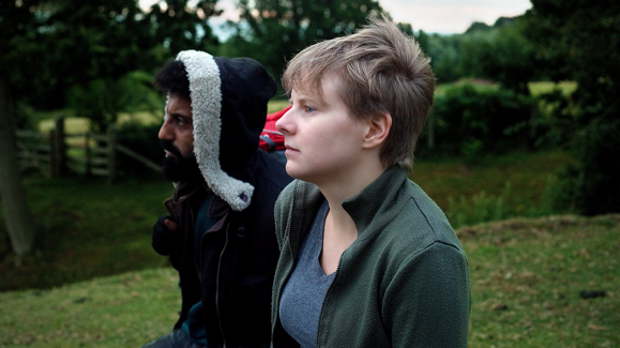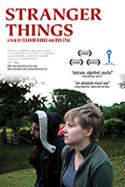Video on Demand — June 2013
 Video pick of the month
Video pick of the month
Stranger Things

Ron Eyal and Eleanor Burke’s elegant and evocative Stranger Things, which won Slamdance’s Narrative Competition Grand Jury Prize in 2011 is a moody and clear-eyed drama from a pair of our 25 New Faces in Independent Film, as tranquil and refreshing as an autumn afternoon along the rural British coast, where much of its story is set.
A young, lonely woman named Oona (Bridget Collins), coping with the recent death of her mother (with whom she was clearly not close) and hoping to sell the house the deceased woman spent her last years making art in, returns to the home’s seaside village to settle the estate. She quickly finds a shaggy, Arab homeless man named Mani (Adeel Akhtar) squatting there. Frightened, she kicks him out, but after she’s driven him away she discovers a sketchbook he left behind that shows great promise. Tracking him down in a nearby shack, she returns the sketchbook, remarks about its quality and offers him shelter and food.
So begins a delicate and brief friendship as this odd pair try, in fits and starts, to get to know one another and to transcend their disappointments and grief. Shot in a gauzy, standard-def digital format, the film has a delicate, strangely evocative, digitally noisy sort of beauty, but more importantly it tells a story that, without seeming to try, gathers great emotional resonance by its final frames. Lesser filmmakers would make this an occasion for unfulfilled desire, but Burke and Eyal are savvy enough to realize that what they have on their hands is a story about two people who have nothing in common but find each other at a moment in which they both desperately need the kindness of an objective stranger, one who can see through the baggage they’ve accumulated and help them rediscover the person they want to be. (Brandon Harris)
